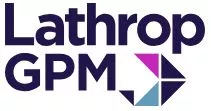The Massachusetts Supreme Judicial Court answered "no" to a certified question from the First Circuit Court of Appeals asking whether plaintiff franchisees "'perform any service' for 7-Eleven within the meaning of [the state's independent contractor law], where . . . they perform various contractual obligations under the Franchise Agreement and 7-Eleven receives a percentage of the franchise's gross profits." Patel v. 7-Eleven, Inc., 240 N.E.3d 765 (Mass. 2024). In the long-running case, a putative class of 7-Eleven franchisees allege that they have been misclassified as independent contractors rather than employees under the Massachusetts Independent Contractor Law. Earlier in the case, the First Circuit certified the question of whether the law's three-prong test for independent contractor status applies to franchisor-franchisee relationships governed by the FTC Rule. A discussion of Massachusetts' Supreme Judicial Court's affirmative answer to that question can be found in an earlier Franchise Memorandum article.
Addressing the First Circuit's second certified question, the Supreme Judicial Court observed that the state's independent contractor law establishes that "an individual performing any service is presumed to be an employee." The court found that 7-Eleven franchisees do not "perform services" for 7-Eleven in fulfilling their obligations under the franchise agreement. The court first noted that a franchisor cannot rest on the labels "franchisee" or "independent contractor" to avoid employer status. But the court also reasoned that a franchisor's (1) provision of certain items or services—such as a license and ongoing support—or (2) derivation of revenue from the sales of certain products or services to franchisees, does not necessarily satisfy the threshold determination. And a franchisor's method of charging a fee—whether a flat-fee or percentage-based royalty—is not, by itself, indicative of an employer-employee relationship. In reaching its conclusion, the court noted that the purpose of the law is "to protect workers by classifying them as employees, and thereby grant them the benefits and rights of employment, where the circumstances indicate they are, in fact, employees[.]" It held that the circumstances of the case before it, which were "typical of franchise relationships," indicated that the franchisees were not employees of 7-Eleven but rather independent business owners.
The content of this article is intended to provide a general guide to the subject matter. Specialist advice should be sought about your specific circumstances.



